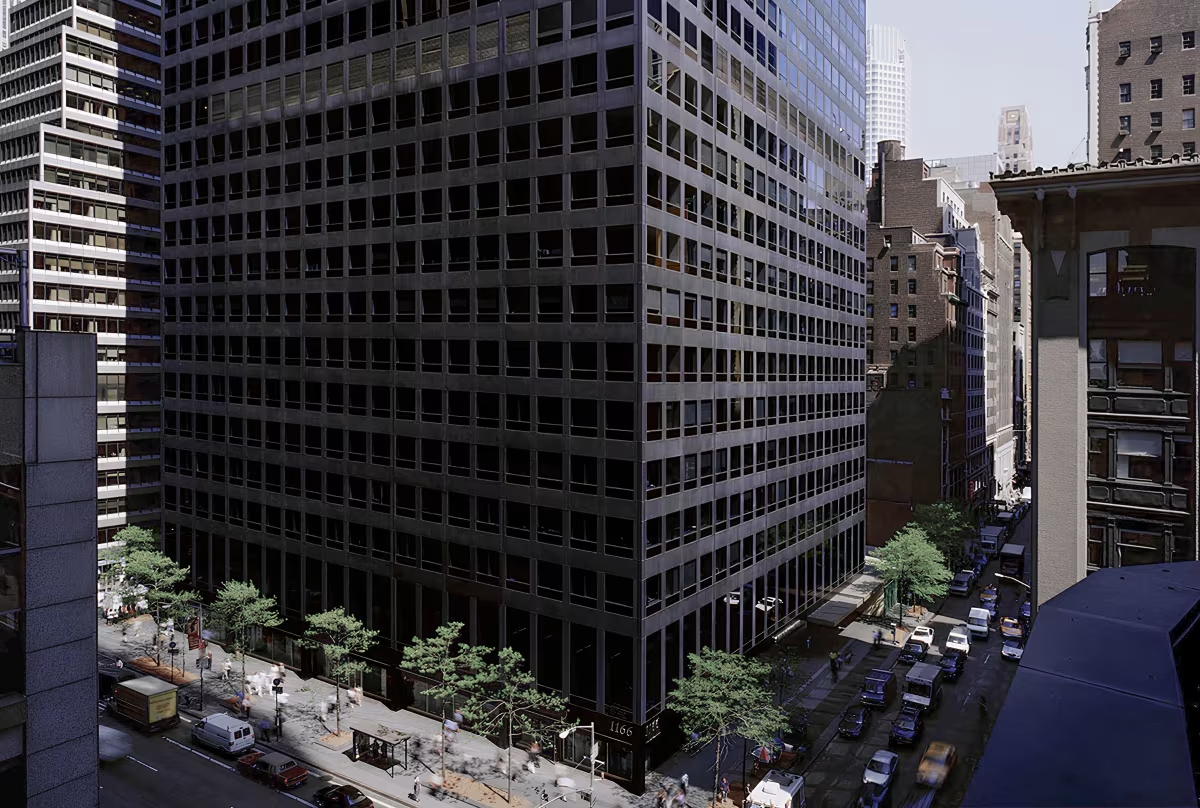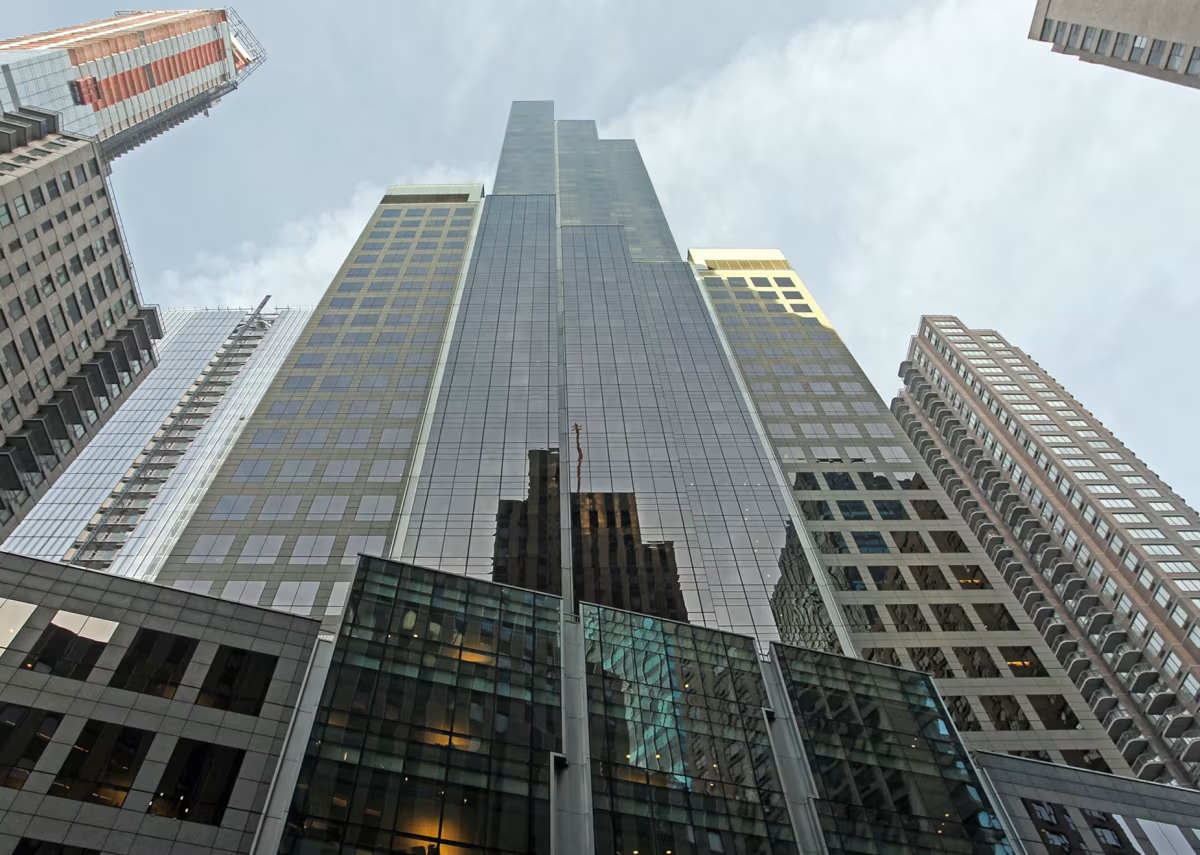1166 Avenue of the Americas Building vs Random House Tower


Comparing the 1166 Avenue of the Americas Building and the Random House Tower is particularly interesting because they share the same skyline in New York, NY, and were both designed by Skidmore, Owings & Merrill. However, they were completed more than 29 years apart.
This offers a unique perspective on how the architect's style and the city's architecture evolved over time.
Height & Size
The Random House Tower is clearly the larger tower of the two, both in terms of height and number of floors. It rises to 682ft (208m) with 52 floors above ground, while the 1166 Avenue of the Americas Building reaches 600ft (183m) with 44 floors above ground.
Of course, each project may have faced different briefs or regulatory constraints, which we don't really know about and could also explain the outcome.
Architectural Style
The 1166 Avenue of the Americas Building was designed in the International Style style, while the Random House Tower reflects the principles of Contemporary.
The 1166 Avenue of the Americas Building represents a late expression of the International Style, a style already in decline in 1974 when it was completed. By contrast, the Random House Tower followed the then mainstream Contemporary, embodying the dominant architectural direction of its time.
With 29 years between them, the comparison also reflects how quickly architectural priorities can shift from one dominant language to another.
Uses
The Random House Tower follows a mixed-use model, combining commercial and residential. In contrast, the 1166 Avenue of the Americas Building has remained primarily commercial.
The Random House Tower offers 101 residential units.
The Random House Tower also provides 150 parking spaces.
Structure & Facade
Both the 1166 Avenue of the Americas Building and the Random House Tower rely on a Frame structural system.
A frame structure uses a grid of columns and beams to carry the building's loads. This frees the walls from structural duties, allowing for flexible floor plans and larger windows.
They also employ the same type of facade, a Curtain Wall facade.
A curtain wall is a non-load-bearing facade hung from the structural frame. It is anchored to floor slabs and transfers only its own weight and wind loads, allowing for sleek, glassy exteriors.
| 1166 Avenue of the Americas Building | Random House Tower | |
|---|---|---|
| Skidmore, Owings & Merrill | Architect | Skidmore, Owings & Merrill |
| 1974 | Year Completed | 2003 |
| International Style | Architectural Style | Contemporary |
| Commercial | Current Use | Mixed |
| 44 | Floors Above Ground | 52 |
| 2 | Floors Below Ground | 2 |
| 170 | Last Floor Height | 193 |
| 183 m | Height (m) | 208 m |
| Frame | Structure Type | Frame |
| Steel | Vertical Structure Material | Steel And Reinforced Concrete |
| Concrete, Steel | Horizontal Structure Material | Reinforced Concrete |
| No | Facade Structural? | No |
| Aluminum, Glass | Main Facade Material | Glass, Steel, Aluminum |
| WSP Cantor Seinuk | Structural Engineer | Thornton Tomasetti |
| NY | State | NY |
| New York | City | New York |
| 1166 6th Avenue | Address | 1739 Broadway |